Sunday, December 7, 2008
From the streets of malate, with love
Social Science 3, Write-up Number 4
(Plagiarize and die. :D )
From the Streets of Malate, With Love
“The days of inspiration, playing hookey, making something out of nothing, the need to express, to communicate, to going against the grain, going insane...”
The sun was almost at the horizon when the march culminated in Orosa Street. The base was too loud at first, but not loud enough to overpower the excited babble in the air. The marchers were cheering, posing for photographs, and waving their banners proudly in the air. There were cameras, of course, snapping away at every opportunity and in every direction. The entire scene looked like something out of Rent production number. I could almost hear “La Vie Boheme” blaring in the background—thus the opening line.
It was an event unlike any other I’ve been to so far. The Pride March, held last December 6, 2008, was both a fun social activity and a political statement.
The marchers, composed of LGBTs (lesbians, gays, bisexuals and transgenders) and their friends and family, gathered in Remedios Circle to make a stand. Beneath the smiles and the costumes, they were there for more than just a show. From Vishnu to Darna, from masked males dancing topless to gay performers in all their glamour, they took to the streets with heads held high, their campaign for equal rights louder than ever.
In one of the participants’ words: “We are doing this because we value individuality. We want social awareness and respect. We are tired of society judging us.”
A myriad of LGBT groups were present during the event, among them 1 Bacardi, Project Equality, the Unitarian Universalist Church of the Philippines (UUPhilippines), TransPilipina, and UP Babaylan.
They were not the only marchers, however. On an opposite street stood those who were against the parade, in their “Trust Jesus” shirts, their banners in red and black, all but condemning the LGBTs. Two hours before the parade itself, tension was already brewing. Although the ratio was 5:1 in favor of the LGBT crowd, their presence, however minute, was the staunch reminder of the very issue they were fighting against. One of the organizers stood in the middle of the street and yelled “Go home!” to no avail. We were later told that it was the first time that the “religious” were so outspoken.
“To riding your bikes midday past the three- piece suits, to fruits, to no absolutes...”
Or in this case, riding their kalesas midday past the three-piece suits. Our Soc Sci 3 class, along with the other section, was behind the Transgender group who was riding in style in horse-drawn kalesas. The interesting thing about Malate is that the high-end establishments stand side by side with the “bars.” You have, on one hand, 1500-a-night hotels, and on the other, what Michel Foucault would call the realm of the “Other Victorians.”
On the day of the parade, it seemed as if they all came out to watch. At one point we interviewed hotel staff, who were more than happy with the event. A manager, impeccably dressed in Americana, said that they definitely should be given their rights—the operative term being, after all, human rights. A guard jokingly asked “Nasaan si Piolo?” but which also made me wonder why there were no celebrities in the event. We also passed groups of gays in their work uniforms who were cheering loudly for those on the floats.
Some taxi drivers said that they had no idea what the event actually was, and referred to it as “baklaan.” Most of the people who were watching, however, were amused and reacted positively. Some foreigners, who turned out to be missionaries, said that it was interesting to see the event outside of the States.
Another thing that I found interesting was the views of those on the other side, people we loosely dubbed “antis.” Upon talking to them, I realized that “antis” was not a proper term—perhaps “concerned citizens” was more politically correct. They said that they did not hate the LGBTs; in fact, they loved them and that’s why they wanted to help them change. “They are a rebellious generation: they go against God and logic. This is not rational and they are living a lie. They are also living in lust. They must turn to the gospels and change their lifestyles.”
A 1 Bacardi member, when presented with this comment, laughed and said, “We don’t want to change. We are proud of who we are. We are not a living a lie, we are being true to ourselves. Lust sila diyan. We are productive homosexuals!!! Hindi ba mas malaking kasalanan ang discrimination?”
“To loving tension, no pension, to more than one dimension, to starving for attention, hating convention, hating pretension...”
Shattering conventions was definitely the name of the game. When one ‘concerned citizen’s’ banner said “Jesus is the Only Way,” a marcher yelled “What about Buddha?!” in reply. The most touching banner I saw, however, was when a mom walked with her son, the sign in front of them saying, “I love my gay son.” A priest and a member of a metropolitan church, onstage in Orosa, told the crowd to face the protesters (who were right behind) and ask, “Would Jesus discriminate?”
My personal favorite was the slogan “Dykes R Us.” “Dyke” is derogatory slang for lesbians, or for lesbians and bisexual women—and yet in this case they decided to own it. It was like saying, in one simple phrase, that “there is nothing wrong with us.”
I also cheered (loudly, I should add) when the feminists, lesbians and bisexuals were speaking on stage. It reminded me of the time Ellen Degeneres said, “So what if I like a girl???” on international television. So what, indeed. Not being “straight,” whatever that actually means, does not make anybody less of a person than anyone else.
“To being an ‘us’ for once, instead of a them...”
“Straight,” “gay” and all the other terms used to classify gender are loaded terms: fraught with denotations. Sometimes it becomes so hard to tell which is fact and which is fiction. And when it comes to something as subjective as gender, there is no black and white.
In the end, the message is pretty clear: No matter who we are, we are all part of this society. We are all equal.
It’s a cliché, but events like this make me realize that the most important lessons are really learned outside the classroom.
My first Pride March is not going to be my last.
(Plagiarize and die. :D )
From the Streets of Malate, With Love
“The days of inspiration, playing hookey, making something out of nothing, the need to express, to communicate, to going against the grain, going insane...”
The sun was almost at the horizon when the march culminated in Orosa Street. The base was too loud at first, but not loud enough to overpower the excited babble in the air. The marchers were cheering, posing for photographs, and waving their banners proudly in the air. There were cameras, of course, snapping away at every opportunity and in every direction. The entire scene looked like something out of Rent production number. I could almost hear “La Vie Boheme” blaring in the background—thus the opening line.
It was an event unlike any other I’ve been to so far. The Pride March, held last December 6, 2008, was both a fun social activity and a political statement.
The marchers, composed of LGBTs (lesbians, gays, bisexuals and transgenders) and their friends and family, gathered in Remedios Circle to make a stand. Beneath the smiles and the costumes, they were there for more than just a show. From Vishnu to Darna, from masked males dancing topless to gay performers in all their glamour, they took to the streets with heads held high, their campaign for equal rights louder than ever.
In one of the participants’ words: “We are doing this because we value individuality. We want social awareness and respect. We are tired of society judging us.”
A myriad of LGBT groups were present during the event, among them 1 Bacardi, Project Equality, the Unitarian Universalist Church of the Philippines (UUPhilippines), TransPilipina, and UP Babaylan.
They were not the only marchers, however. On an opposite street stood those who were against the parade, in their “Trust Jesus” shirts, their banners in red and black, all but condemning the LGBTs. Two hours before the parade itself, tension was already brewing. Although the ratio was 5:1 in favor of the LGBT crowd, their presence, however minute, was the staunch reminder of the very issue they were fighting against. One of the organizers stood in the middle of the street and yelled “Go home!” to no avail. We were later told that it was the first time that the “religious” were so outspoken.
“To riding your bikes midday past the three- piece suits, to fruits, to no absolutes...”
Or in this case, riding their kalesas midday past the three-piece suits. Our Soc Sci 3 class, along with the other section, was behind the Transgender group who was riding in style in horse-drawn kalesas. The interesting thing about Malate is that the high-end establishments stand side by side with the “bars.” You have, on one hand, 1500-a-night hotels, and on the other, what Michel Foucault would call the realm of the “Other Victorians.”
On the day of the parade, it seemed as if they all came out to watch. At one point we interviewed hotel staff, who were more than happy with the event. A manager, impeccably dressed in Americana, said that they definitely should be given their rights—the operative term being, after all, human rights. A guard jokingly asked “Nasaan si Piolo?” but which also made me wonder why there were no celebrities in the event. We also passed groups of gays in their work uniforms who were cheering loudly for those on the floats.
Some taxi drivers said that they had no idea what the event actually was, and referred to it as “baklaan.” Most of the people who were watching, however, were amused and reacted positively. Some foreigners, who turned out to be missionaries, said that it was interesting to see the event outside of the States.
Another thing that I found interesting was the views of those on the other side, people we loosely dubbed “antis.” Upon talking to them, I realized that “antis” was not a proper term—perhaps “concerned citizens” was more politically correct. They said that they did not hate the LGBTs; in fact, they loved them and that’s why they wanted to help them change. “They are a rebellious generation: they go against God and logic. This is not rational and they are living a lie. They are also living in lust. They must turn to the gospels and change their lifestyles.”
A 1 Bacardi member, when presented with this comment, laughed and said, “We don’t want to change. We are proud of who we are. We are not a living a lie, we are being true to ourselves. Lust sila diyan. We are productive homosexuals!!! Hindi ba mas malaking kasalanan ang discrimination?”
“To loving tension, no pension, to more than one dimension, to starving for attention, hating convention, hating pretension...”
Shattering conventions was definitely the name of the game. When one ‘concerned citizen’s’ banner said “Jesus is the Only Way,” a marcher yelled “What about Buddha?!” in reply. The most touching banner I saw, however, was when a mom walked with her son, the sign in front of them saying, “I love my gay son.” A priest and a member of a metropolitan church, onstage in Orosa, told the crowd to face the protesters (who were right behind) and ask, “Would Jesus discriminate?”
My personal favorite was the slogan “Dykes R Us.” “Dyke” is derogatory slang for lesbians, or for lesbians and bisexual women—and yet in this case they decided to own it. It was like saying, in one simple phrase, that “there is nothing wrong with us.”
I also cheered (loudly, I should add) when the feminists, lesbians and bisexuals were speaking on stage. It reminded me of the time Ellen Degeneres said, “So what if I like a girl???” on international television. So what, indeed. Not being “straight,” whatever that actually means, does not make anybody less of a person than anyone else.
“To being an ‘us’ for once, instead of a them...”
“Straight,” “gay” and all the other terms used to classify gender are loaded terms: fraught with denotations. Sometimes it becomes so hard to tell which is fact and which is fiction. And when it comes to something as subjective as gender, there is no black and white.
In the end, the message is pretty clear: No matter who we are, we are all part of this society. We are all equal.
It’s a cliché, but events like this make me realize that the most important lessons are really learned outside the classroom.
My first Pride March is not going to be my last.
Subscribe to:
Post Comments (Atom)




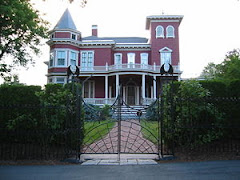
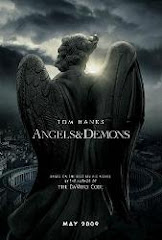
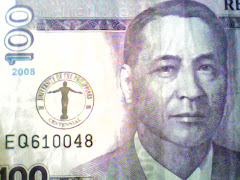

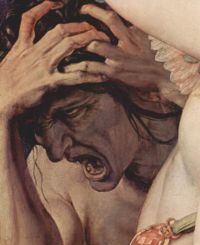

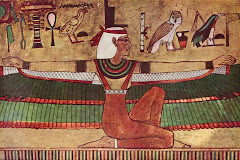
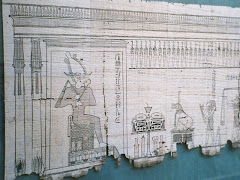


No comments:
Post a Comment